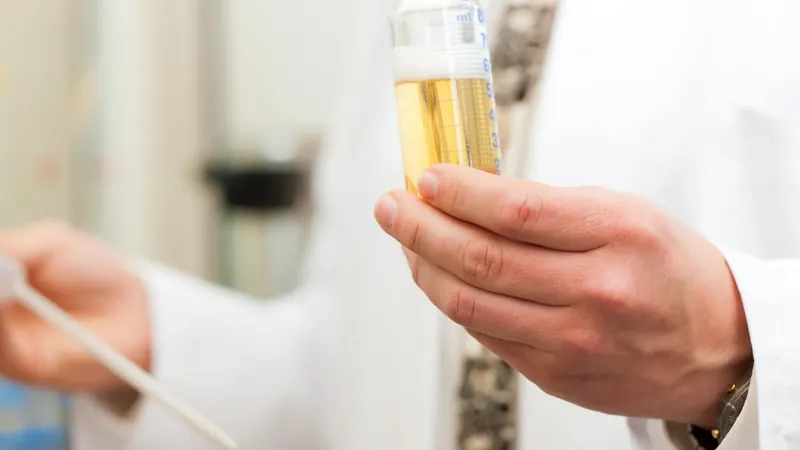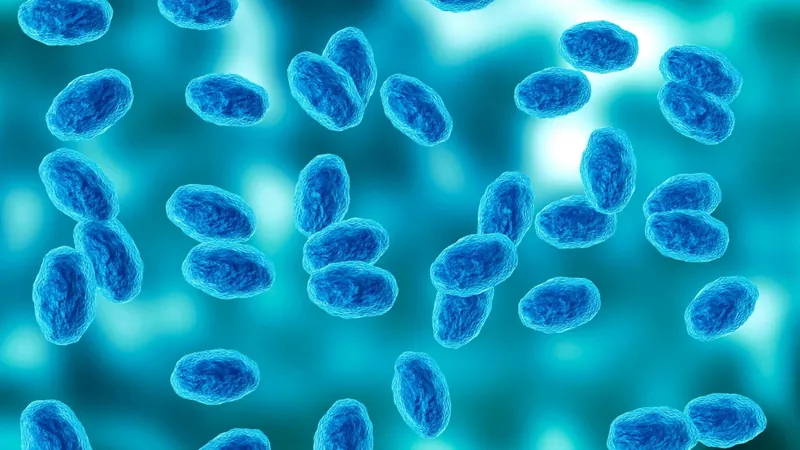
Revolutionizing Medicine: Beer Yeast Transformed into Mini Factories for Next-Gen Smart Drugs
2025-06-28
Author: John Tan
The Future of Drug Development is Brewing
Imagine a world where tiny factories nestled within yeast cells churn out powerful medications! That's exactly what scientists have accomplished with beer yeast, turning these humble microorganisms into efficient producers of macrocyclic peptides—highly promising drugs known for their precision targeting and reduced side effects.
Say Goodbye to Slow and Wasteful Methods
Traditional techniques for discovering and testing these peptides are often clunky, slow, and not eco-friendly. To tackle these issues, researchers cleverly engineered brewer's yeast to create different macrocyclic peptides. This transformation means each yeast cell acts as a 'micro-factory' that glows when it produces a desired compound, allowing scientists to identify promising candidates in record time.
Swift Screening that Saves the Planet
Sara Linciano, the leading researcher from Ca' Foscari University, shares, "We have engineered yeast so that each one turns fluorescent when it’s working on a specific compound. This innovation enabled us to analyze a staggering 100 million peptides rapidly and effectively." The use of advanced fluorescence-based techniques allows the team to screen billions of these micro-factories in mere hours—light years ahead of traditional methods.
A Green Approach for Healthier Solutions
Co-lead researcher Ylenia Mazzocato emphasizes the environmental benefits of this method: "By utilizing yeast's natural processes, we create peptide molecules that are safe for both health and the planet. This truly represents a 'green pharma' approach."
Proven Precision in Binding
The team also demonstrated how these peptides interact precisely with their targets. Zhanna Romanyuk, who played a key role in the structural analysis, stated, "Using X-ray crystallography, we confirmed the excellent binding properties of these peptides, showcasing their precision and potency."
Transforming Drug Discovery for Better Health
This groundbreaking method could significantly transform drug discovery, especially for complex targets that current drugs struggle to address. Associate professor Alessandro Angelini notes, "We are breaking new ground in creating macrocyclic peptides capable of delivering advanced therapies directly to specific cells, which could revolutionize treatments. The potential benefits for patient health, alongside substantial scientific and economic impacts, are immense."
Exciting Partnerships and Future Prospects
This innovative project is part of the National Recovery and Resilience Plan (PNRR), backed by the European Union's Next Generation EU initiative. It involves multidisciplinary collaborations with leading institutes including the Kyoto Institute of Technology and the Chinese Academy of Sciences.
Patented Technology with Global Impact
Part of this pioneering technology has already been patented by Ca' Foscari and acquired by the startup Arzanya S.r.l. Angelini expresses his pride: "Seeing our technology recognized internationally is fulfilling. I hope Arzanya provides our talented young researchers the chance to thrive here in Italy, without the need to venture abroad."


 Brasil (PT)
Brasil (PT)
 Canada (EN)
Canada (EN)
 Chile (ES)
Chile (ES)
 Česko (CS)
Česko (CS)
 대한민국 (KO)
대한민국 (KO)
 España (ES)
España (ES)
 France (FR)
France (FR)
 Hong Kong (EN)
Hong Kong (EN)
 Italia (IT)
Italia (IT)
 日本 (JA)
日本 (JA)
 Magyarország (HU)
Magyarország (HU)
 Norge (NO)
Norge (NO)
 Polska (PL)
Polska (PL)
 Schweiz (DE)
Schweiz (DE)
 Singapore (EN)
Singapore (EN)
 Sverige (SV)
Sverige (SV)
 Suomi (FI)
Suomi (FI)
 Türkiye (TR)
Türkiye (TR)
 الإمارات العربية المتحدة (AR)
الإمارات العربية المتحدة (AR)